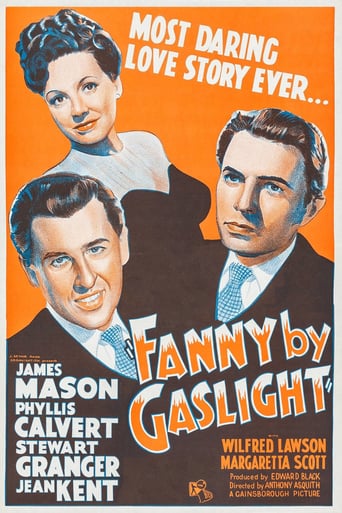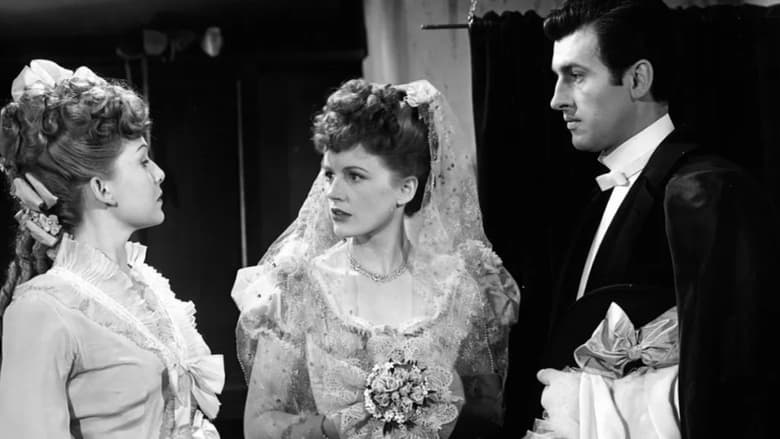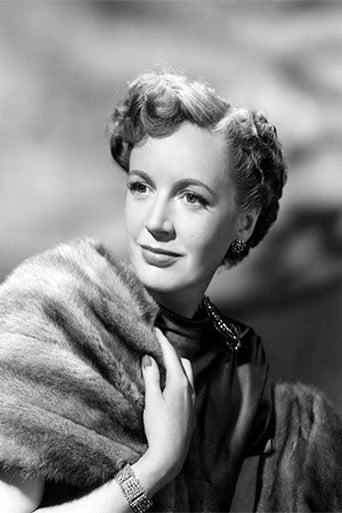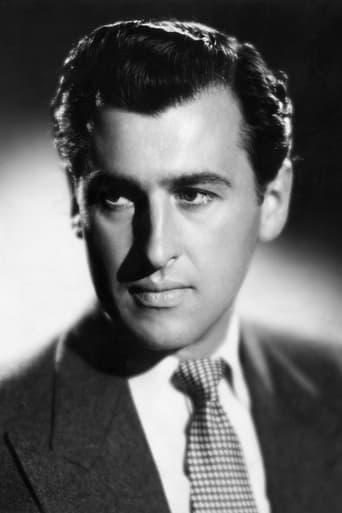

Fanny by Gaslight (1944)
Returning to 1870s London after finishing at boarding school, Fanny winesses the death of her father in a fight with Lord Manderstoke. She then finds that her family has for many years been running a bordello next door to their home. When her mother dies shortly after, she next discovers that her real father is in fact a well-respected politician. Meeting him and then falling in love with his young advisor Harry Somerford leads to a life of ups and downs and conflict between the classes. Periodically the scoundrel of a Lord crosses her path, always to tragic effect.
Watch Trailer
Cast
Similar titles



Reviews
You won't be disappointed!
To me, this movie is perfection.
It's easily one of the freshest, sharpest and most enjoyable films of this year.
The film never slows down or bores, plunging from one harrowing sequence to the next.
I first saw this movie at one of the local movie theaters around Times Square, New York, that frequently featured second run British movies. My original intention was to see James Mason and Stewart Granger face off against each other. Instead, I found myself falling in love with the heroine played by Phyllis Calvert, who immediately became my favorite British actress.The story may smack of soap opera; I've followed several in my time, and yet this story, admittedly overdone, I found to be very sympathetic, and immediately found myself falling in with the main protagonist, and wishing her to eventually prevail, despite all the adversity she had to face from so many individuals.I have continued to love this movie and have gone back to seeing it many times. I admit that Stewart Granger is rather wooden at times and James Mason appears only at certain strategic moments. However, the player whom I found myself yearning more to see was Jean Kent; fortunately for her, she was given full opportunity to display her complete diversity in subsequent films, many of which I have also seen. (I would like to comment that Ms. Kent is happily still with us, approaching 90 as of next year.)I agree that the moment where Stuart Lindsell as Fanny's natural father is about to kill himself because of pressures exerted by his erstwhile wife having become too much is right out of a horror story, at the moment where one sees those multiple mirror images.Certain other players in this film I have also found to be quite believable considering the context - Wilfrid Lawson as Chunks, Amy Veness as Mrs. Heaviside, and perhaps one or two others.In addition to James Mason, the individual contributions by Margaretta Scott and Cathleen Nesbitt are also sufficiently believable to invite our intense dislike, as each throwing another obstacle in the path of our heroine.I understand that these impressions are purely individual; as with any work of art, we experience such in our own way. In my case, it made a very warm, positive impression on me - I cannot say exactly why. I would recommend it to anyone who likes high Victorian melodrama, mindful that I am not necessarily in a majority with my impression, but that is how I am. Chacun e son gout, as they say.I just finished viewing Madonna of the Seven Moons, another film in this same Gainsborough series, and also featuring Phyllis Calvert, Jean Kent,and Stewart Granger. While this latter is a fascinating story based upon a multiple personality, I found it to be inferior in its cohesiveness and ability to draw the viewer in, compared with Fanny by Gaslight, which I have just commented on. I could easily imagine that the superior direction by Anthony Asquith may have something to do with it.
Fanny By Gaslight was one of Gainsborough Pictures romances starring its greatest stars, Phyllis Calvert, Stewart Granger, and James Mason all in their salad days. It's a Victorian soap opera with a lot of Dickens like class consciousness thrown into the mix.The best works of Charles Dickens like David Copperfield, Nicholas Nickleby, and Great Expectations have the common thread of a young man of limited means making his way in the world who with a combination of hard work and good circumstances comes out on top at the end of the story. Fanny By Gaslight is just that kind of a story, except that Dickens would never have his protagonist be a woman. But Fanny Hooper as played by Phyllis Calvert is as good a Dickens hero as you will ever find.When Calvert returns from boarding school her father, John Laurie, is killed in a fight ejecting a drunken James Mason from his establishment which is just this side of a brothel. When he dies she finds out that Laurie was not her real father, that she is the daughter of a prominent politician Stuart Lindsell. She's taken into his house as a maid. Calvert also makes the acquaintance of rising young politician Stewart Granger who is a protégé of Lindsell and Granger falls big time for Calvert.Eventually all this becomes known about Calvert's background and it leads to an inevitable climax between Mason and Granger. How it gets to that point is the crux of the film.Several incidents from the 19th century are used. The sex scandals are pieced from those involving Charles Dilke and Charles Parnell. Lindsell's suicide, jumping in front of a train is a recreation of the death of William Huskisson killed accidentally though by George Stephenson's newly invented locomotive.Calvert and Granger are a winning pair of lovers and James Mason is one hateful aristocratic villain, a privileged man who lives to enjoy his privileges at the expense of others as Phillip Barry said. I was surprised at how well Fanny By Gaslight holds up today. In fact the Hays Office had it banned from the USA for a while. Maybe that's its secret.
Fanny by Gaslight is an inspirational film, in that it is willing to take risks with the subject matter which not only questions British morals, but exposes its hypocrisy regarding them! James Mason illustrates the depth of his talent, and makes the film all the more worth watching.Fanny being the epitome of Victorian double standards illustrates to us why the feminist movement came into being. Her oppression eventually produces a rebellious woman in that she agrees to marry Harry just to be defiant, rather than to conform to the man-made idea of marriage. Therefore, Fanny's decision to marry Harry is not meant to produce a cliché happy ending. In this respect the producers of this controversial film are taking more risks. It is that they are willing to take risks with this film that the producers need recognition. It is about time contemporary film producers, directors etc. were willing to do the same instead of playing it safe, culminating in producing very bland films which are an insult to the art. By doing this, the only risks contemporary film makers are taking is that of loosing audiences.. This void will be filled by French film producers etc. who have already spotted the gap in the art of film making, and are filling it fast!
I did want to like this British 40s movie, but there's just too much against it - Phyllis Calvert, who acquires a terribly chic accent straight from school; wooden Stewart Granger as the parliamentary secretary who loves Fanny; John Laurie as her dad with an illicit business on the side; politicians self-destructing; and far too little of James Mason, here giving yet another brooding and sadistic, sardonic aristocrat.'Fanny By Gaslight' does try - it manages to get subject matter into it that must have seemed very daring in the 1940s, it starts well and grows into some good scenes between Fanny ('only Hooper') and her employer's wife. Then - perhaps because of Granger, IMO - it starts to backfire badly and become a bore. A great disappointment.









